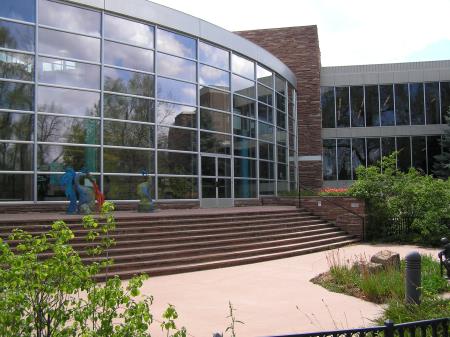The Boulder Public Library has suffered from “benign neglect,” the three panelists at a PLAN-Boulder forum on July 15, entitled “Has the Boulder Public Library Been Neglected?” agreed. Although they carefully disclaimed any insinuation that the city’s management or the City Council bears any animosity toward the function of public libraries, they asserted that the Boulder Public Library has been losing out in the competition between city departments for shrinking resources.
“The library is being asked to do more with less,” panelist Sam Fuqua, the chair of the Library Commission, asserted. He stated that the library’s circulation has increased since legendary, former director Marcelee Gralapp retired, but that its employment numbers have decreased from 93 full time equivalents to 79. Another panelist, former Library Commissioner Steve Clason, recounted that in each of his five years of service on the commission the library’s budget was reduced, starting with a ten percent cut. “The instruction was, ‘Cut the budget, but don’t let anyone see it,’” he claimed. Clason remarked that in his first years as a commissioner, the commission believed that the revenue shortages were temporary and would be quickly reversed, but slowly realized that it needed to deal with long-term scarcity.
The third panelist, Anne Sawyer, who is secretary of the Library Commission, commented that the library’s top management has been hollowed out, with many positions either unfilled or eliminated. She also observed that although the last library director had resigned in the spring on 2010, “we didn’t even post for a new director until November 4.”
Fuqua claimed that “the library lacks an organized and vocal constituency. It has not fought enough for its budget.” Sawyer called for “strong, politically savvy leadership” on the library’s behalf and asserted that the library director needed to advocate for it within the city’s bureaucracy. Both indicated that they would welcome a broad-based, citizens’ movement campaigning for the library.
Clason, however, seemed to contend that the role of the library needs to be re-perceived by the city’s leaders. He argued that the library is a fundamental community asset with paramount value to every citizen and that consequently it should be exempted from the scramble for budgetary allocations. “The sewers don’t need citizen activists in order to be maintained,” he declared. “The library shouldn’t need citizen activists, either.”
Fuqua observed that the bonds issued in order to rebuild and expand the main Boulder Public Library will be paid off this year, but that the sales and use tax revenues authorized by the voters to support those bonds will continue. He recounted that this winter he had proposed to Boulder’s city manager that that revenue, which he said totaled about $1 million a year — or 15 percent of the library’s current $7.1 million annual budget — be allocated to the library. He reported that the city manager had rejected his plan, and declared that instead she intended to include these revenues in a much larger fund that would pay for capital improvements throughout the city. The panelists noted that a blue-ribbon panel had recently recommended that about $2.45 million from such a capital improvements fund be used to re-locate the children’s section in the main public library and to build a center there for teenagers.
The panelists readily acknowledged that the Internet and digital technology are exerting a profound effect on public libraries. Sawyer said that they are evolving into community gathering places which provide access to electronic media for those who otherwise would lack it. She remarked that video-conferencing facilities will probably become common in public libraries. Fuqua remarked, “The library is no longer a warehouse for books.” However, Sawyer noted that the Boulder Public Library now often buys both the electronic and the paper version of the same book, which drives up expenses. All of the panelists also concurred that the library must function to help excite children about reading.
Fuqua disclosed that the Library Commission has been considering a North Boulder branch occupying as little as 1,500 to 2,000 square feet, perhaps in space in an existing shopping center that is donated by the landlord or rented at below-market rates. He said that such a branch could provide a community meeting place, which he claimed is badly needed in North Boulder, offer children’s programs, and incorporate a “virtual library.” The panelists indicated that a “virtual library” consists of one or more computer terminals which allow access to many databases. The panelists seemed to suggest that ultimately most public library systems, including Boulder’s, would include more, smaller branches and main libraries that are reduced in size.
All of the panelists opined that the concept of a library district with independent taxing authority which would include Boulder and perhaps surrounding municipalities should be studied. Clason, however, cautioned that such a district would almost certainly increase the total tax burden borne by citizens for municipal services and therefore should be examined with great care.
In response to a question from a member of the audience, Fuqua asserted that a coffee shop will be re-opened in the main public library in the foreseeable future. He said, though, that improvements needed for the coffee shop, principally new water and wastewater lines, may not be installed until the other renovations of the main public library are undertaken. He also indicated that the new coffee shop may be situated in the glass entryway, which would seem to many observers to be an astonishingly poor location — oppressively hot in the summer, cold in the winter, windy all year round, crisscrossed by foot traffic, and completely devoid of the serene, creek views afforded by the former coffee shop on the bridge.



